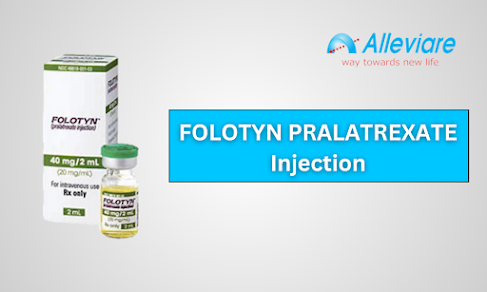What Patients Should Know about Early Access Programs- AlleviareIndia
Introduction:
In the world of medical research and development, new
treatments, drugs, and therapies are constantly being developed to address
various health conditions. However, the journey from initial development to
final approval by regulatory authorities can be a lengthy process, leaving many
patients eagerly awaiting access to potentially life-saving treatments. This is
where Early Access Programs (EAPs) come into play. In this article, we will explore
what patients should consider when participating in an Early Access Program.
Understand the Purpose and Eligibility Criteria:
Before considering participation in an Early Access Program,
it's important to understand its purpose. EAPs are designed to provide access
to investigational treatments for patients who have exhausted all other
available options and have a serious or life-threatening condition. Familiarize
yourself with the eligibility criteria to determine if you meet the necessary
requirements.
Discuss with Your Healthcare Provider:
Consulting with your healthcare provider is crucial when
considering an Early Access Program. They can provide insights into the
potential risks and benefits of the investigational treatment and help you make
an informed decision. Your healthcare provider can also guide you through the
application process and provide necessary documentation.
Assess Potential Risks and Benefits:
Participating in an Early Access Program involves some level
of uncertainty. Since the treatment is still undergoing testing, potential
risks may exist. It is essential to thoroughly evaluate the possible risks and
discuss them with your healthcare provider. Similarly, weigh the potential
benefits against the risks and determine if the treatment aligns with your
health goals.
Gather Sufficient Information:
Educate yourself about the investigational treatment, its
mechanism of action, and the available clinical data. Request information from
the program organizers, research the treatment's development progress, and
review any published studies or trials. This information will help you make an
informed decision and understand the potential outcomes.
Consider the Logistics and Costs:
Participation in an Early Access Program may involve travel,
frequent medical visits, and additional costs that may not be covered by
insurance. Evaluate the logistics involved, such as the proximity of the
treatment center, travel arrangements, and associated expenses. Assess your
financial situation and explore available options for financial assistance or
support.
Support System and Emotional Preparedness:
Participating in an Early Access Program can be emotionally
challenging. It's important to have a strong support system in place, including
family, friends, or patient support groups. Discuss your decision with loved
ones and seek emotional support throughout the process.
Regular Communication and Monitoring:
Maintaining open communication with the healthcare team
overseeing the Early Access Program is crucial. They will monitor your
progress, evaluate any potential side effects, and adjust the treatment as
necessary. Be prepared for frequent check-ups, follow-ups, and reporting any
changes or concerns promptly.
Conclusion:
Participating in an Early Access Program can offer hope for
patients with serious or life-threatening conditions who have exhausted standard
treatment options. However, it is essential to consider the factors mentioned
above and engage in thorough discussions with healthcare providers before
making a decision. Alleviare Life Science Pvt. Ltd. provides Early Access Program Consulting Services to Patients. By being well-informed, assessing risks and benefits, and
having a strong support system, patients can navigate the Early Access Program
journey with greater confidence and make choices that align with their health
needs and goals.



Comments
Post a Comment